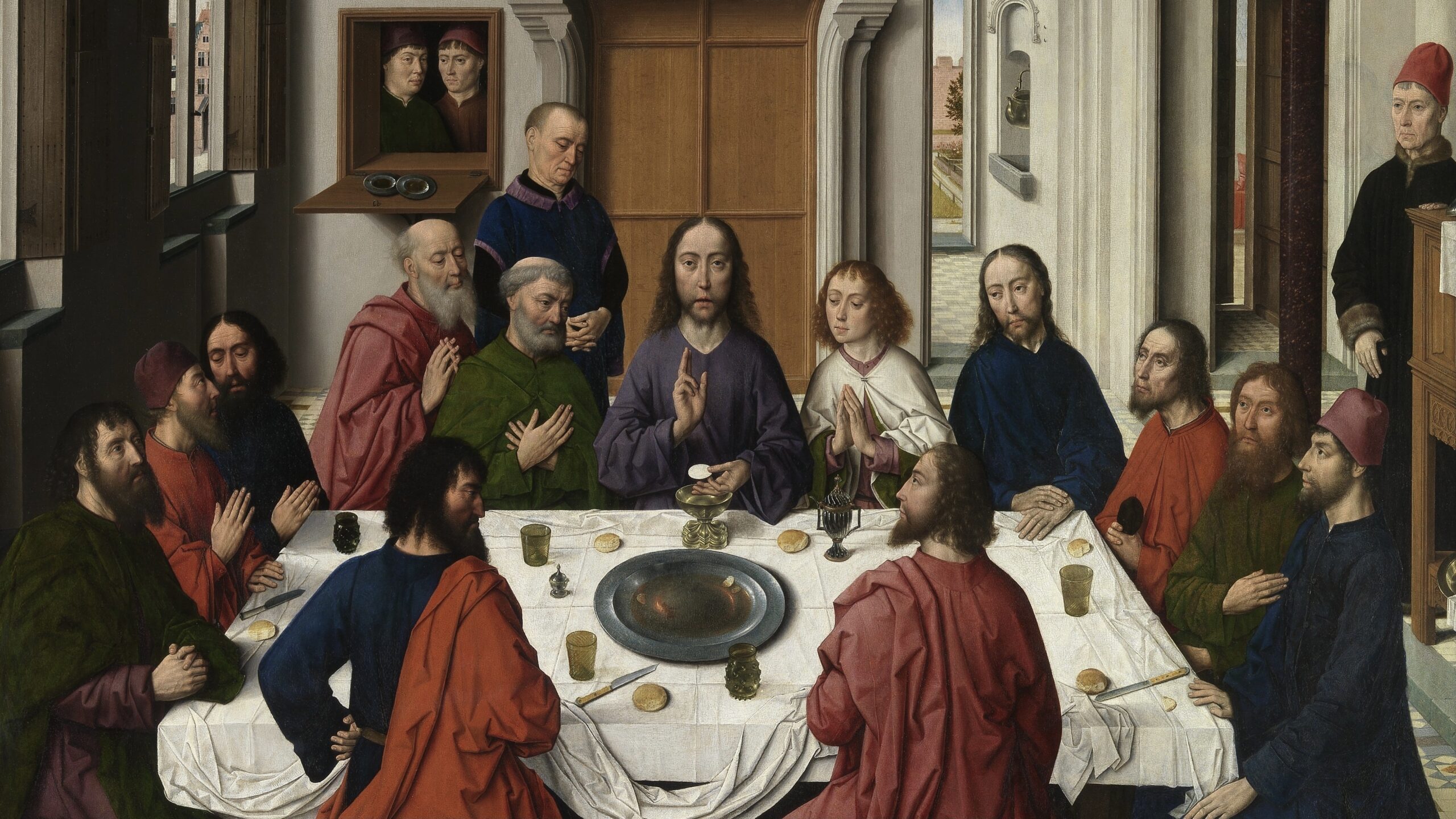
wo authoritative sources for the Church’s teaching on this point are the Catechism (always a good place to begin) and the Council of Trent. Here is the Catechism:
The Lord, having loved those who were his own, loved them to the end. Knowing that the hour had come to leave this world and return to the Father, in the course of a meal he washed their feet and gave them the commandment of love. In order to leave them a pledge of this love, in order never to depart from his own and to make them sharers in his Passover, he instituted the Eucharist as the memorial of his death and Resurrection, and commanded his apostles to celebrate it until his return; “thereby he constituted them priests of the New Testament.
And here is Trent:
If any one shall say, that by those words, Do this in remembrance of me, Christ did not institute the apostles priests; or, did not ordain that they, and other priests, should offer His own body and blood; let him be anathema.
The Church gives Catholics no option to deny that Christ ordained his apostles to be priests.
•••
But that we may know the certainty of what we teach, let us turn to the biblical text where Christ ordains his apostles. In Luke 22:19, at the Last Supper, he says to them: “This is my body which is given for you. Do this in remembrance of me.”
With those words, Christ ordains them as priests to offer the Eucharist as a sacrifice.
Christ’s words, in the Greek text, are: τοῦτο ποιεῖτε εἰς τὴν ἐμὴν ἀνάμνησιν, touto poieite eis tēn emēn anamnēsin. The words “touto poieite,” “do this,” have a sacrificial meaning. In Early Christian Doctrines, J.N.D. Kelly writes:
It was natural for early Christians to think of the Eucharist as a sacrifice. The fulfillment of prophecy demanded a solemn Christian offering, and the rite itself was wrapped in the sacrificial atmosphere with which our Lord invested the Last Supper. The words of institution, ‘Do this’ (touto poieite), must have been charged with sacrificial overtones for second-century ears; Justin at any rate understood them to mean, ‘Offer this.’ … The bread and wine, moreover, are offered ‘for a memorial (eis anamnasin) of the passion,’ a phrase which in view of his identification of them with the Lord’s body and blood implies much more than an act of purely spiritual recollection. (196–197)
The reason this is important is because, to a first century Jew, only a priest can offer a sacrifice. If, therefore, Christ tells his apostles “Do this”; and if the words have a peculiarly sacrificial meaning; then he is making them priests. He is is ordaining them.
That the first Christians understood the Eucharist this way we know from the Didache:
Assemble on the Lord’s day, and break bread and offer the Eucharist; but first make confession of your faults, so that your sacrifice may be a pure one. Anyone who has a difference with his fellow is not to take part with you until he has been reconciled, so as to avoid any profanation of your sacrifice [Matt. 5:23–24]. For this is the offering of which the Lord has said, ‘Everywhere and always bring me a sacrifice that is undefiled, for I am a great king, says the Lord, and my name is the wonder of nations.
•••
But we also know that the Greek word “poieite” (“do”) has a sacrificial meaning, connected with the priesthood, by virtue of the text of Exod. 29:38 in the Greek Septuagint. Speaking to the Levite priests of the Old Covenant, the Lord says: “And these are what you shall offer upon the altar: lambs of a year old, unblemished, two for each day perpetually.” The Greek word translated “offer” (i.e., sacrifice) is the very same that Christ uses in Luke 22:19: ποιήσεις. When Christ says “Do this,” he is saying, “Sacrifice this.”
A sacrifice is the act of a priest alone.
Just as in the Old Covenant, the Levite priests offered an unblemished lamb as a sacrifice, so in the New Covenant priests offer Christ—the Lamb unblemished by sin—as a sacrificial offering for sin.
When Christ says to his apostles at the Last Supper, “Do this,” “touto poieite,” he is using the very word for “sacrifice” the Greek text of Exodus uses to describe the act of a priest.
He is ordaining his apostles.
For a more detailed biblical exegesis, take a look at Fr. James Swetnam’s article in Pastoral and Homiletic Review.
Discover more from To Give a Defense
Subscribe to get the latest posts sent to your email.